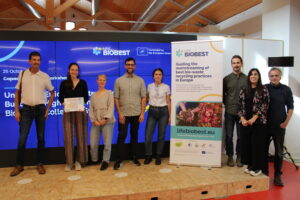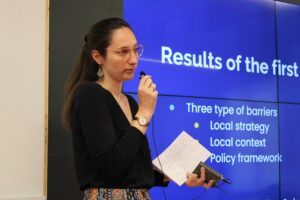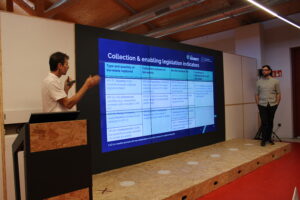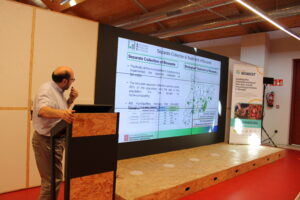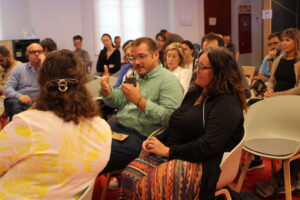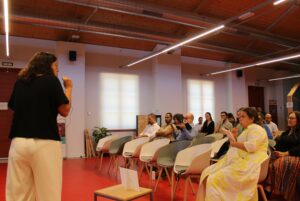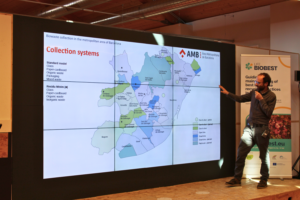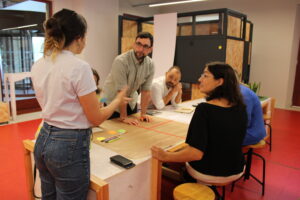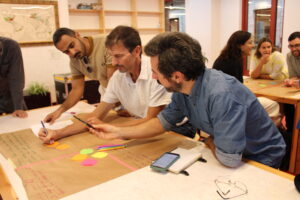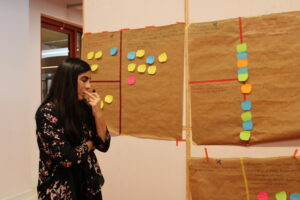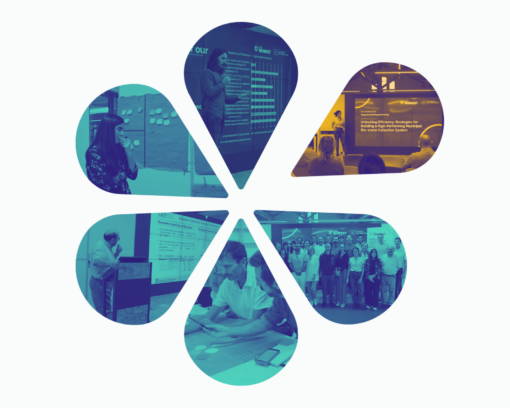
Towards high-performing separate collection systems for bio-waste: Insights from the first LIFE BIOBEST capacity-building workshop
The forthcoming European obligation to separately collect bio-waste presents a challenge for many European cities and member states: how can we build highly efficient municipal bio-waste separate collection systems and reach recycling targets in the coming years?
To help local officials and technicians answer this, Zero Waste Europe (ZWE) organised the first capacity-building event, “Unlocking Efficiency: Strategies for building a high-performing municipal bio-waste system,” within the framework of the LIFE BIOBEST project.
In Barcelona on the morning of 25 October, we brought together all partners in the LIFE BIOBEST Consortium, as well as several local authorities from the Catalonia region and other stakeholders from civil society and the waste sector who were interested in learning about the project’s outcomes, many of whom had attended the ZWE Study Tour in the days preceding the workshop.
The Consortium partners and stakeholders who joined the capacity-building workshop in Barcelona on 25 October 2023.
All in all, 45 people attended in person and online, which led to fruitful discussions with experiences shared from across Europe. Presentations were given by local authorities from the region in Catalan and English, allowing participation from a wider range of stakeholders thanks to the simultaneous translation that was organised for the day.
Preliminary results of the LIFE BIOBEST project
The workshop kicked off with several presentations on the preliminary results of the LIFE BIOBEST project, including the development of 23 Key Performance Indicators (KPIs) by CIC and ECN. Local authorities can use these KPIs to understand the status of their bio-waste management strategy, both regarding the collection and treatment of bio-waste, as well as the use of the outputs (compost and digestate) and the current legal framework surrounding the sector. The KPIs range from the quantity of bio-waste inside residual waste bins to the average price for compost/digestate sold and the amount of plastic residues found in the end compost/digestate product.
The Consortium partners (ENT, ACR+, CIC and ECN) sharing the preliminary results of LIFE BIOBEST during the workshop.
In addition to the KPIs, several barriers impeding successful bio-waste management strategies were presented by ENT and ACR+. These barriers were gathered by ENT through interviews conducted with Member State waste authority experts as well as some European umbrella organisations. Additional barriers were identified through the organisation of the first co-creation event, which was attended by other local and regional authorities (LRAs) and European waste authorities.
Learning from local best practices and challenges
Alongside the Consortium’s presentations of the preliminary project results, several presentations from Catalan bio-waste management strategies were shared. During the workshop, participants heard from speakers sharing their experiences with building and improving upon the municipal bio-waste system in their unique, local context, with some presenting their best practices and others the challenges they’ve faced:
- Gemma Vinyes from Berguedà County (touristic zone);
- Aleix Canalis from Ripollet (high-density area);
- Marta Vila Gambao from Mataró (touristic zone);
- Esteve Gimenez from Sant Cugat (high-density area);
- Víctor Mitjans from the Metropolitan Area of Barcelona (high-density area) and;
- Francesc Giró i Fontanals from Waste Agency of Catalonia.
The speakers shared many brilliant examples of how bio-waste strategies have been adapted successfully to the local context, including in Berguedà County, where bio-waste is collected door-to-door three times a week in biodegradable bags. To ease the transition to a more efficient collection system, Berguedà County created a comprehensive communications campaign, organising specific sectoral meetings for different groups in the community and delivering bio-waste management kits at information points for residents.
Speakers presenting best practices and challenges from the Catalonia region.
The event also showcased some of the challenges that municipalities still face in order to facilitate discussions among participants on how to overcome these common problems. One of these challenges was presented by Marta Vila Gambao from Mataró, who highlighted the municipality’s approach to adapt collection models to each area. For example, Mataró has installed mobile points with closed containers in the city center and is expanding door-to-door collection system from subdivisions to higher density neighborhoods. Other key topics included the management of commercial waste from industrial areas. Another challenge was presented by Víctor Mitjans from the Metropolitan Area of Barcelona, who shared that while the smart bins used by the municipality have increased the quality of the bio-waste collected, it hasn’t increased the quantity.
Co-creating the ideal bio-waste system for different local contexts
To apply the insights gained to real–world scenarios, we organised an interactive co-creation exercise for the final part of the workshop. Attendees were invited to co-design policies aimed at improving the performance of municipal bio-waste collection systems within four hypothetical (but very common) local contexts: industrial, urban, tourist and rural. A simplified example of a scenario could be: how to implement door-to-door collection of bio-waste effectively within a densely populated area containing a large number of multi-story apartment buildings. In each scenario, the participants were asked to identify the main barriers affecting system efficiency and possible solutions. This co-creation exercise enabled participants to apply the knowledge they had previously acquired and to take the first steps towards finding practical and sustainable strategies for bio-waste management.
Attendees working together to find the most efficient bio-waste management strategies in different scenarios.
This workshop marks the beginning of a series of in-person events under the LIFE BIOBEST project. Our goal is clear: to support municipalities with the proper information and guidance on how to implement the most effective bio-waste management systems locally, helping to close the gap in the biological cycle and enrich our depleted soil with high-quality compost.
We thank our local partners and all the speakers for their contributions to make this event so successful – the first of many more to come during the project.
Watch a recording of the workshop
